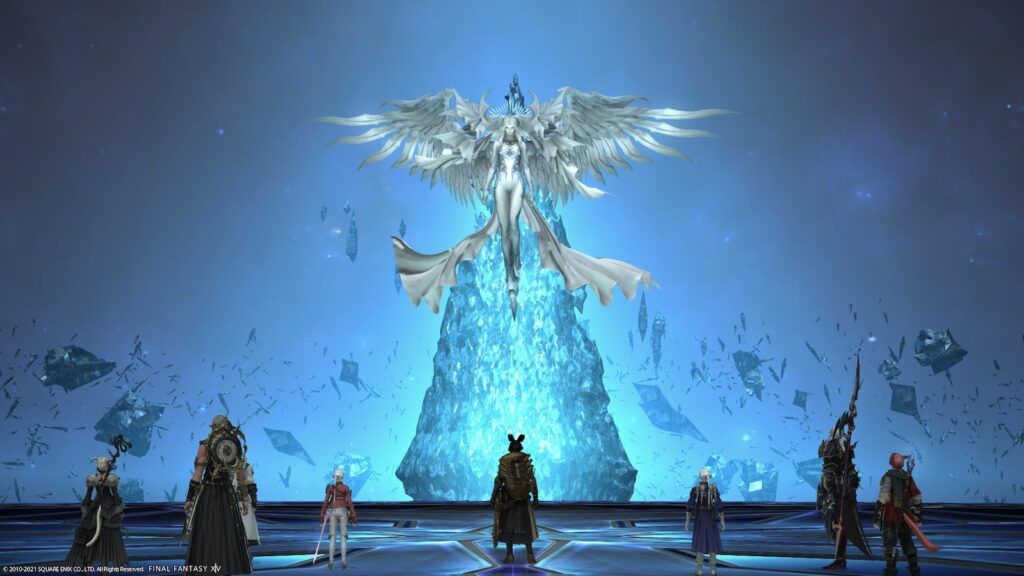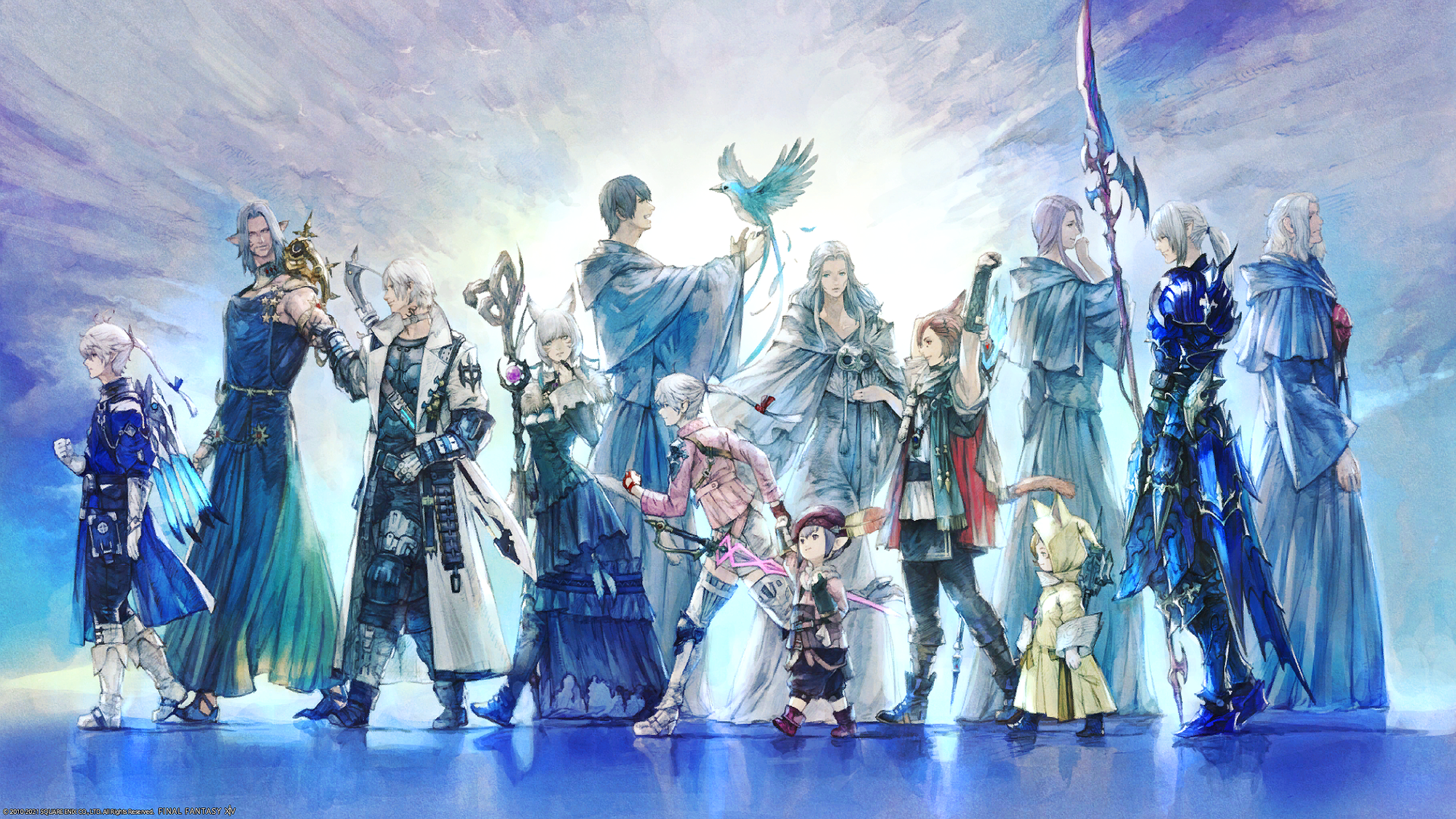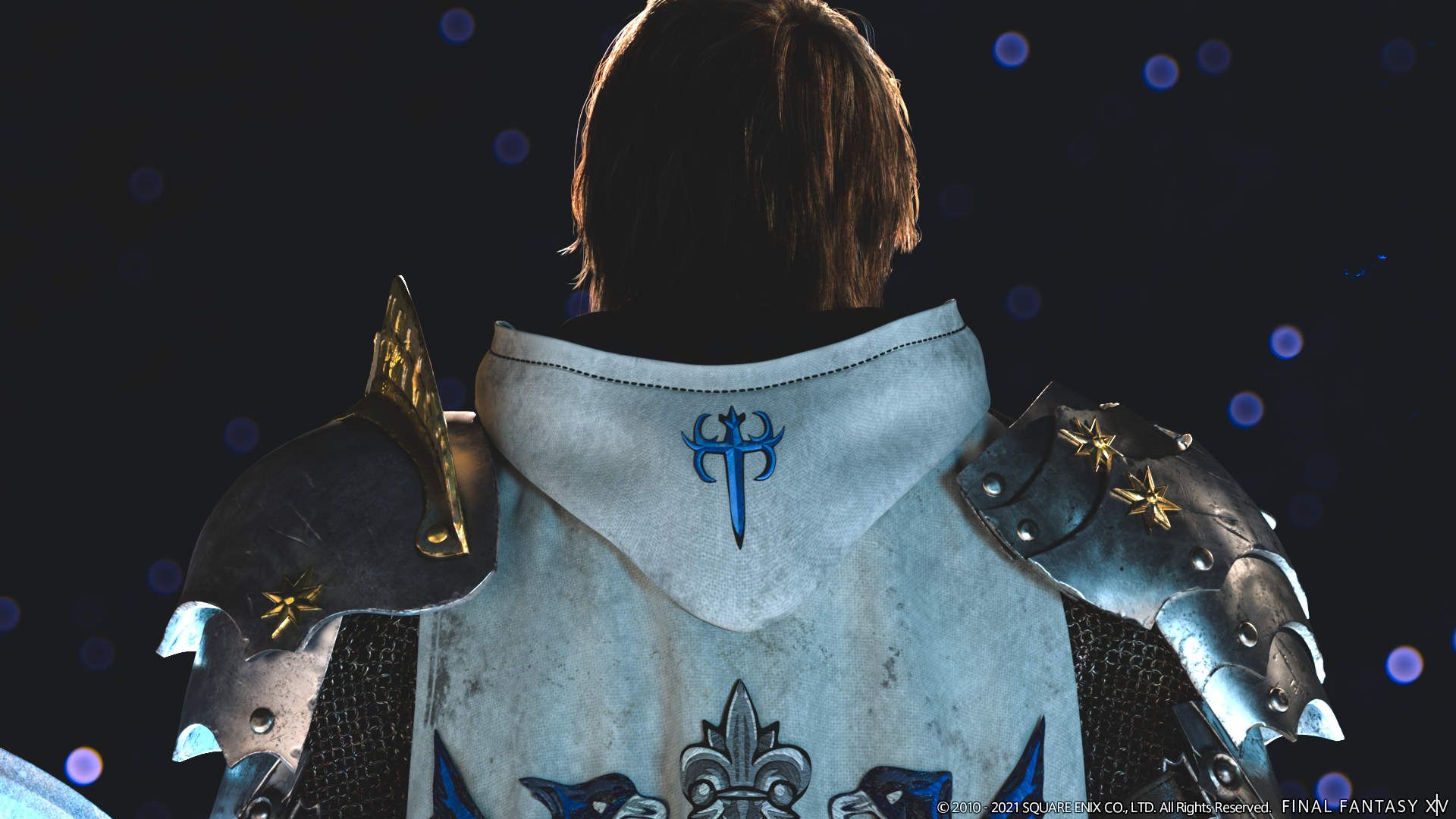The Little Light Within: FFXIV's Endwalker and the Fierceness of Hope
Hope is sometimes the most audacious goal


It's been a year since Final Fantasy XIV: Endwalker graced our screens; a year since we've saved the world from a little wish that went awry. In the break between expansions, we've been given the quietude of stasis, our renowned and stalwart Warriors of Light finally able to take a well-deserved sojourn into boundless adventure. The world, no longer plagued by an existential threat, has opened to us like a bloom.
But in reaching its terminus, Endwalker ushered fans into a world that grappled with the absence of meaning. It took us along and, with a deft deployment of gravitas and maturity, explored the ways we might come to terms with an imminent end. This was, for longtime fans, nearly a decade-long anticipation. The main story introduced in A Realm Reborn was meant to finish with Endwalker, but unlike most games that end at the completion of the narrative or main objectives, FFXIV has to provide players with incentive to still play.
We didn't know who'd live, who'd die, and what the consequences of this dire venture might be.
We all waited in that long, long queue with the impression that FFXIV was a game being made into perpetuity, and this was merely a new chapter to explore. That knowledge itself was an acceptance of capital, a sensible approach to game-as-product, one that momentarily distanced us from whatever emotional costs the game might incur. But the inevitable was hard to ignore, and our connection to the characters and world filled every scene with the palpable tension of premeditated loss. We didn't know who'd live, who'd die, and what the consequences of this dire venture might be.
In its exploration of life and meaning, Endwalker gives players room to grapple with the certainty of loss, in its melancholy and its celebration. There is a fierceness to the statement it makes about moving forward, above all else, and at any cost, to reach the future. Endwalker proposes a vision of hope that is raised like a sword, graceful and commanding in its force.
Gently Into That Good Light

The cyclical nature of a game like FFXIV means that we are constantly bleeding beginnings into ends and vice versa. The "arcs" of the story are more like "seasons" of a television show, in that they feed off of older developments while exploring new threats and pre-existing drama. We have old loops closed (and some left open), dangling threads that can be easily plucked by narrative developments to tie into a new story. What makes FFXIV so successful is this proliferation of potential, this constant tease of farther mysteries and stories. From the sky pirates to the concept of the other shards, there are myriad avenues for future explorations, so much so that people speculated wildly as to where 7.0 would go up until a pretty revealing series of recent patches. After Endwalker, really, we could have ended up anywhere.
There was a collective holding of breath as we neared release, with an outpouring of memes, speculations, and theories that kept me on the edge of my anticipation for days.
Having played through each expansion with greater love for the game, arriving at Endwalker at launch, fully set for early access, was a dream come true. I had never been able to rush the gates for any previous expansions, so finally getting to do so at the first arc's culmination felt monumental. There was a collective holding of breath as we neared release, with an outpouring of memes, speculations, and theories that kept me on the edge of my anticipation for days. I read through these proclamations and made a few myself alongside the game's real beating heart: its fans.
FFXIV itself is a journey into the unknown that follows, albeit with some caveats, the path of the Hero's Journey. There is a comfortable place of residence in the initial introduction and then the hero is thrust into a series of emotional trials, arriving, at the very end, to a place from which they are expected to never return. It is in the depths of Endwalker's terrible losses, taking place in one of its most evocative locales, that we arrive at the story's ever-bright conclusion. After we lose all that we have there is a literal rise from the "underworld" of our despair, with little time to mourn and with the words of those we've lost echoing past us. And while we, the player, understand the gimmick, it does little to dimmish the heart of what was being said.
Knowing the sentiment that spurred the predecessor of our convocation seat, from the moment she first told us to "Hear, Feel, Think", we come to realize what it means for us, as we are, to exist:
"...amidst deepest despair, light everlasting."
The Warmth of Other Hearths

Wikipedia's definition of hopepunk is that it "...is a subgenre of speculative fiction, positioned as a counter to grimdark. Works in the hopepunk subgenre are about characters fighting for positive change, radical kindness, and communal responses to challenges."
A new term on the sub-genre stage, the designation has been retroactively applied to older properties that hit the benchmarks of its definitions. Among them are The Lord of the Rings, The Goblin Emperor by Katherine Addison (a great book, for anyone looking for a read), Sense8, and Doctor Who. What actually constitutes the checklist for Hopepunk is still objective, but, as with all forms of criticism in the genre-verse, there are stabilizers to the definition. Namely, that it rejects the supposed maturity of cynicism, and that it proposes radical positivity as a solution.
Rarely is a story entirely hopeful or entirely without hope, and often it is the prevalence, predilection for, and practice of hope that sets the latter apart from the former.
Delineating media into "grimdark" and "hopepunk" as the two ends of a spectrum of philosophical explorations can often fail to showcase their leanings in either direction. Rarely is a story entirely hopeful or entirely without hope, and often it is the prevalence, predilection for, and practice of hope that sets the latter apart from the former. Criticisms of hopepunk often cite it as an overly sentimental form of art that relies on aesthetic tropes and feel-goodisms, but a story like Endwalker fails in these checks due to its restlessly rising stakes. The eye-roll-inducing "friendship is my power" trope can be overwrought with melodrama and is sometimes used as an unrealistic dues-ex-machina against a big bad, but Endwalker does exactly this with such an astute awareness of what it's saying that it feels more sincere. It transcends the comical usage of such devices by employing love and hope as weapons just as mercilessly as annihilation, regardless of whether we succeed in wielding them into victory.
"I think hopepunk is the opposite of apathy. In so many stories these days, characters are (literally or metaphorically) lighting cigarettes and enjoying the end of the world. They may look cool doing it, but it’s profoundly anti-social and toxic. As soon as your characters don’t give a shit about anything, you’re leaving hopepunk behind."
Analee Newitz, A Hopepunk Guide
In currently playing through a title like Disco Elysium, which stars a chain-smoking drunkard who is the perfect candidate for being a despondent witness to the end of the world, there is a validity to the apathy. It can be stoked in order to provoke action, or it can exist as the consensus to fatalism itself. Neither of these outlooks are inherently bad or good on a subjective level, but in the effort to perpetuate survival, one of them simply benefits more from itself.
Endwalker takes hope and "weaponizes" it, not necessarily against dark or evil forces, but against people who disagree with what they perceive as a flagrant waste of time.
I don't necessarily want to get into the variances of these ways of thinking, as I find both fascinating, but rather I want to show how Endwalker specifically posits hope not only as a radical solution but one that should be upheld at all costs. Endwalker takes hope and "weaponizes" it, not necessarily against dark or evil forces, but against people who disagree with what they perceive as a flagrant waste of time. The character of Emet-Selch in Shadowbringers exemplified a loss of hope while also clinging to his old past with such hope that he was willing to sacrifice everything to get it back. And in Endwalker we become so bullishly determined to save our world that we create room in him to understand the importance of - and limits of - something as interminable as hope.
We so often see hope as a softly lit thing, of the David to whatever Goliath threatens it, but here hope is wielded with tenacious violence, big enough to smother opposition.
What feels so drastic about Endwalker's expression of hope it that it brokers no room for surrender or disagreement. There are gentle moments, such as a solider offering a mug of warm rations to an oppressor now without a home, but it is not always a soft and kind perseverance. It is often a bloody and brutal affair. This is not a protestation against hopelessness in the form of a quiet rebellion, it is a war waged on the essence of cynicism itself. We so often see hope as a softly lit thing, of the David to whatever Goliath threatens it, but here hope is wielded with tenacious violence, big enough to smother opposition. Endwalker's final dungeon offers a glimpse of worlds that had hope and lost it, some due to no fault of their own and others because of their own mistakes. Our main villain in this expansion laments that hope did not save any of these lost worlds, she mourns with resentment how destruction is always inevitable, whether it be of external of internal causes. War, strife, disease, the pursuit of knowledge at any cost: all of these damages are felt as prescient glimpses to our own world's potential ends. And we are meant to fight that, using all that we have.

"We forget, sometimes, that we have knives too in this empire. That we can unsheathe them, that we can turn our blades to the defense of an atom of justice and a molecule of mercy that might not even exist—except . . . except for where we make them exist, in the hands we hold out to each other, and in the shelter we offer even when we ourselves are exhausted, footsore, and filthy, with the wolves at our doors. There are no heroes and no villains. There are just people. That’s hopepunk: Whether the glass is half full or half empty, what matters is that there’s water in that glass. And that’s something worth defending."
Alexendra Rowland, One Atom of Justice, One Molecule of Mercy, and the Empire of Unsheathed Knives
There is a reason that Mad Max: Fury Road is a favorite movie of mine. It is more than visual feast and a masterclass of subtle world building: it suggests a place where femininity is a violent, destructive thing. The movie's depiction of a brutal world ruled by power and destitution is never painted without a yearning for something better. It is in the wordless nods Max gives to Furiosa, in the small lantern that lights the darkest of nights in the swamp, the blood willingly given by a once apathetic character to save the life of another.
There is a brutality to having faith in people, a viciousness in the protection of our own little lights, a tenacity to yearning for more, for better.
I think that taps into why a story as pursuant of hope as Endwalker resonates with me so strongly. There is a brutality to having faith in people, a viciousness in the protection of our own little lights, a tenacity to yearning for more, for better. Hope can be pressed like a knife into the gut of pessimism, and it is not always successful in making allies of old enemies. That's the essence of hope in Endwalker: it is a quiet, fierce thing.
